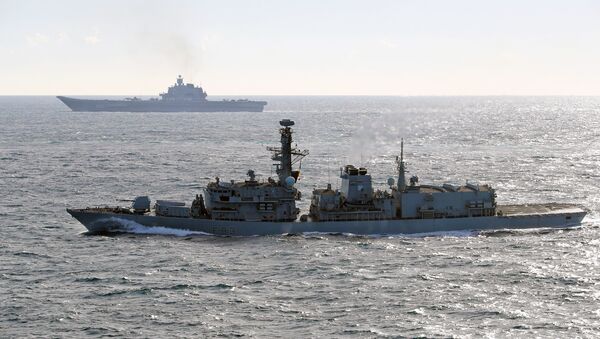A similar monitoring operation conducted last years is said to have cost the UK £1.4 million pounds ($1.77 million).
"One cannot but get an impression that costly escorting operations and the hype in the media serve to secure more budget funds on rearmament and to divert attention away from real issues plaguing the Royal Navy," the analyst said.
The Royal Navy operates a fleet of 77 ships, including 13 Type 23 frigates, six Type 45 guided missile destroyers and four ballistic missile submarines tasked with maintaining the country's nuclear deterrent. Some of them have been involved in embarrassing incidents in recent years.
The advanced Type 45 destroyers have been in service since the early 2000s. In 2016, the UK Ministry of Defense admitted that the ships had trouble with the propulsion system which has occasionally led to near-complete power generation failures.
The Type 23 frigates have been in service since the 1990s and are currently undergoing a multi-billion pound life extension upgrade. The decommissioning process will start in the early 2020s and is expected to be complete by 2035.
The Trident nuclear program has been dogged by controversy.
In 2015, "WikiLeaks published a report authored by engineering technician William McNeilly on the Trident's security system which said that the UK is on the verge of a nuclear disaster," Khrolenko said. "Perhaps, the engineer exaggerated the issue, but the fact that he blew the whistle points to how unreliable the UK's subsurface forces are."
This appears to be an accurate assessment. Last week, news leaked that a 2016 test involving a Vanguard-class submarine ended in failure when an unarmed Trident II D-5 ballistic missile malfunctioned and veered toward the US coast, the exact opposite of where it was supposed to fly.
These incidents prompted Khrolenko to conclude that anti-Russian activities are meant to "divert attention of [British taxpayers] away from major challenges the UK Ministry of Defense faces at sea. But reality has a sobering influence."
Never miss a story again — sign up to our Telegram channel and we'll keep you up to speed!




